W
hen operational costs go up and consumers have less money to spend, specialty coffee roasters have to be creative. In this blog, we’ll share the takeaways of the Ready to Rumble webinar series with four industry experts in Europe and the USA.
The costs of running a roastery have gone up over the past couple of years. According to Algrano’s Market Trends Report 2023, 45% of roasters say consumers are more price-sensitive. As inflation continues to bite, roasteries face a period of uncertainty. 61% became more averse to risk.
But this is not the whole picture. During Covid, consumers started spending more on beans, subscription services and equipment. They developed a taste for the good stuff - and they’re not going back.
To help roasters understand demand in these uncertain times, Algrano invited four coffee roasters to share their experiences in two webinars. The Ready to Rumble series shared some serious business advice.
We were joined by Alice Juguet of Coutume in Paris, Amaris Gutierrez-Ray of Joe Coffee in New York, Ted Stachura of Equator Coffees in the San Francisco Bay Area, and Philipp Shallberger of Kaffeemacher in Basel.
You'll learn how they’re engaging with consumers and making coffee accessible. There’s something there for everyone, no matter the size of the roastery and where it's located.
Round 1: Accessibility Via Menu Design & Incidental Learning
Accessible Coffees With a Twist: Democratising Specialty
Coutume divides its many single-origin coffees into three main categories: Apprécier (Appreciate), Explorer (Explore) and Déguster (Savour). All coffees in each category, from four to ten lots, have the same prices for retail and wholesale.
On the retail side, categories make it easier for consumers to find what they like and reduce the price pressure in their decision-making. They also help Coutume take consumers on a journey through different levels of quality, acting as an incidental learning tool.
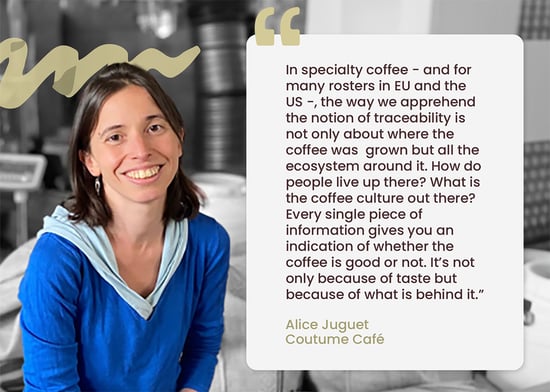
On the wholesale side, categories give Coutume more flexibility when sourcing without having to rely on blends with ever-changing components. It helps reassure accounts that the profile they serve won’t change even if the de facto coffee does.
Making specialty coffee more accessible goes beyond serving coffees that are not too acidic. It’s about giving consumers tools to access the values of specialty coffee. This is why Coutume started communicating more about what they do and writing reports.
Well-trained baristas are also essential to make specialty accessible to a wider audience. One of Coutume’s shops outperformed others despite price increases because the knowledgeable staff kept consumers coming back with a high level of service and a great coffee experience.
Takeaways
Making specialty coffee accessible is about more than price or quality. It’s about simplicity, experience, and consumer education. Though cuppings and courses do help educate customers, most learn during their visits to coffee shops and through the roastery’s menu.
Simple Menus to Drive Sales: the Village Case
Amaris’ experience at Joe Coffee speaks to a different belief: that a roastery needs novelty to keep customers interested. In 2022, at time when Joe had many single-origins on the menu, she tracked the sales of each coffee across different channels.
The numbers were clear. Despite being located in a wealthy city, sales of all single-origin lots had declined since 2019. All but one, a middle-of-the-range price Colombian coffee they could sell year-round.
For Amaris, familiarity was essential to understanding why that coffee outperformed other single-origin lots. So she decided to bundle them up under a single brand name that would also be available year-round.
That’s how The Village was born.
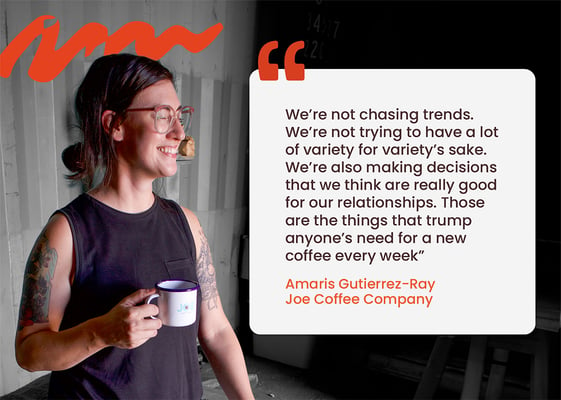
Launched in 2023, The Village is Joe Coffee’s all-in-one female-produced single-origin offer. All coffees share a similar story (they’re grown by women), giving staff an easy tagline to talk about them. She also removed the overwhelming information from the labels to reduce decision fatigue.
Nearly one year later, The Village is a success, loved by baristas and consumers alike. Assuming that many customers are not knowledgeable about specialty, this is a less demanding coffee.
Takeaways
Familiarity plays an important role in consumers’ preference for coffee, especially if they’re new to the brand and new to specialty. Having a simple single-origin menu makes it easier for staff to talk about the coffee and removes decision fatigue from the buying process.
Round 2: Meeting Customers Where They Are
Growing Your Online Presence and Leveraging Producers
Being YouTube stars was not Philipp Schallberger and Benjamin Hohlman's ambition when they founded Kaffeemacher. But with nearly 100,000 subscribers on their German YT channel alone, that’s what they’ve become.
YouTube has been instrumental in building trust and loyalty with customers. It’s one of the reasons why the roastery’s website performs so well on search engines, exposing them to more people on all stages of their coffee journey.
Machine testing has proved to be wildly popular, more so than coffee. Philipp says nothing kills a video faster than a sales pitch. He sees digital content not as a sales exercise but as a bonding one. Most of all, it’s important to be authentic so you can connect with customers.
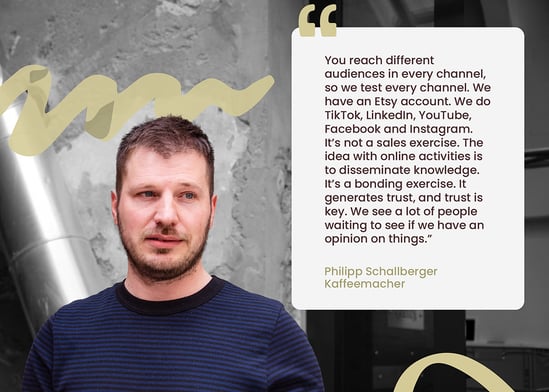
Philipp believes that web stores should be a coffee experience. Blogs and videos are regularly uploaded to increase the time spent on the site. Only a fraction of the content is explicitly about a coffee they sell.
One of Kaffeemacher’s most popular initiatives is a monthly Zoom call with first-time buyers. Every month, new customers join a 90-minute online session where staff answers questions. Funny YouTube shorts also get a lot of engagement and can be a good way to get started. Comedy sells.
Takeaways
Being generous with your knowledge online helps search engines see you as an expert in your field and rank you higher, so more consumers find you. Video and interactive sessions build bonds between you and your audience. Be authentic. Consumers will buy because they trust you.
Specialty and Convenience: Instant, RTD, and Capsules
For Equator Coffees, different product lines are a way to meet customers where they are and nudge buyers into specialty. Their menu includes instant coffee, Ready to Drink beverages and compostable capsules. Such products increased the ticket size of Equator's customers and attracted new buyers.
Before capsules, the roastery was missing out on sales. Some clients who became used to fresh roasts during the pandemic didn’t buy Equator coffee because they had pod machines. Now, they don't have an excuse to go back to supermarket coffee.
For Ted, the first step in launching a new product is to make sure you have enough demand that you can sell the minimum volume required by the co-packer. Equator had wholesale requests, like hotels that make espresso at the restaurant but also offer capsules in the guests’ rooms.
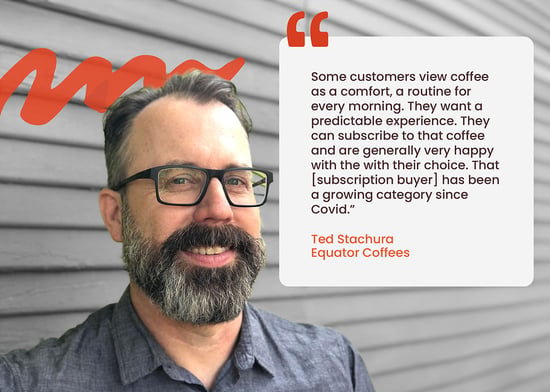
R&D is also different for each product. With capsules, Ted said small changes in grind size had a big impact on the cup. With RTD, he focused on transport because of a shorter shelf life and cold chain distribution.
Equator offers capsules and instant subscriptions and has customers who are loyal to those categories without impacting the sales of whole beans, a sign that they’re bringing more people to the roastery.
Takeaways
New products help roasteries grow the ticket size of retail and wholesale customers and cater to new buyers who are new to freshly roasted coffee. The R&D process is long and the product’s shelf-life will have a big impact on distribution, so knowing your demand before the launch is key.


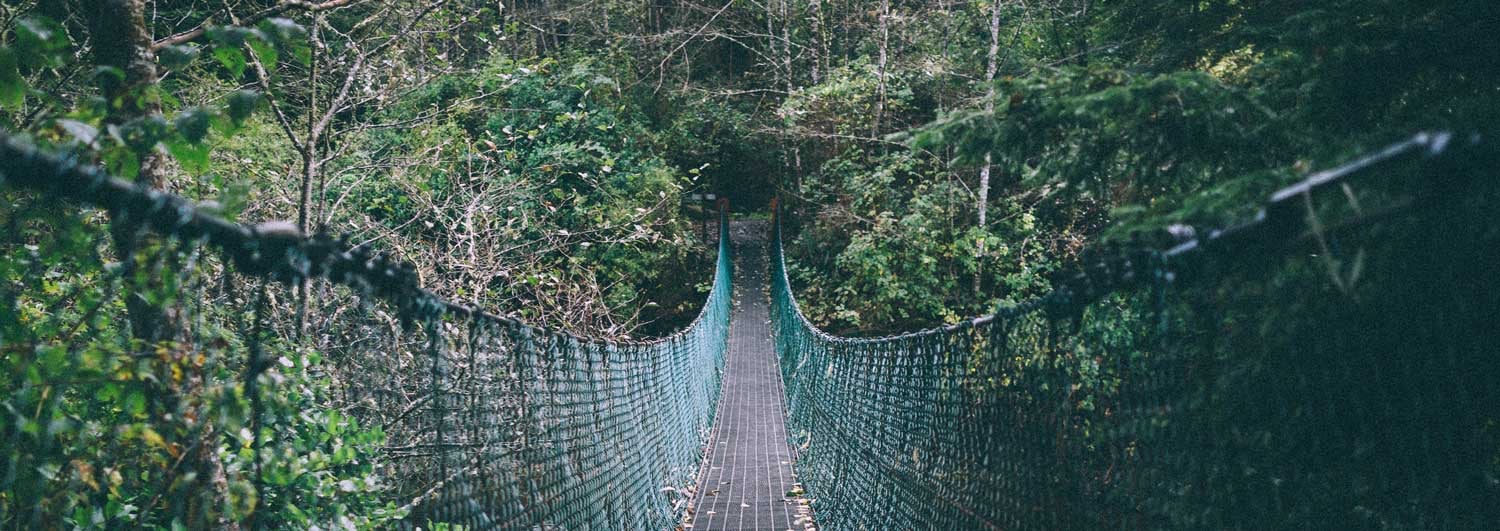
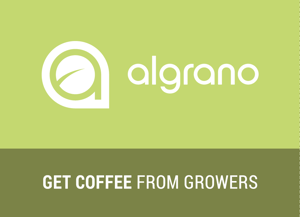
Let Us Know What You Thought about this Post.
Put your Comment Below.